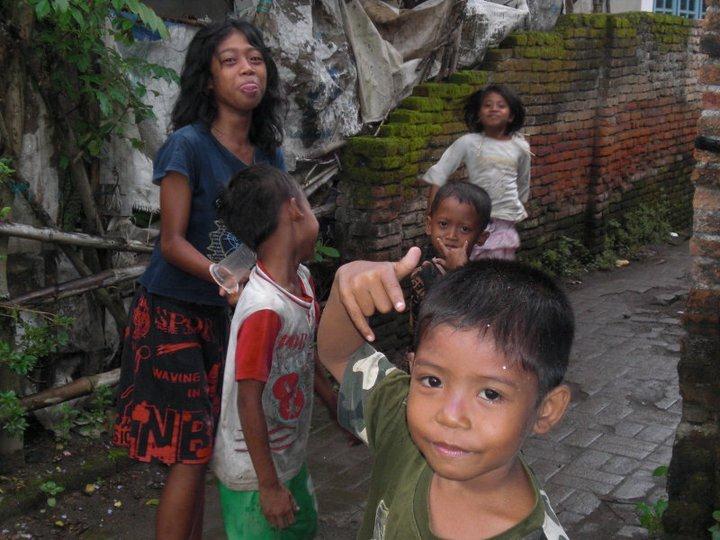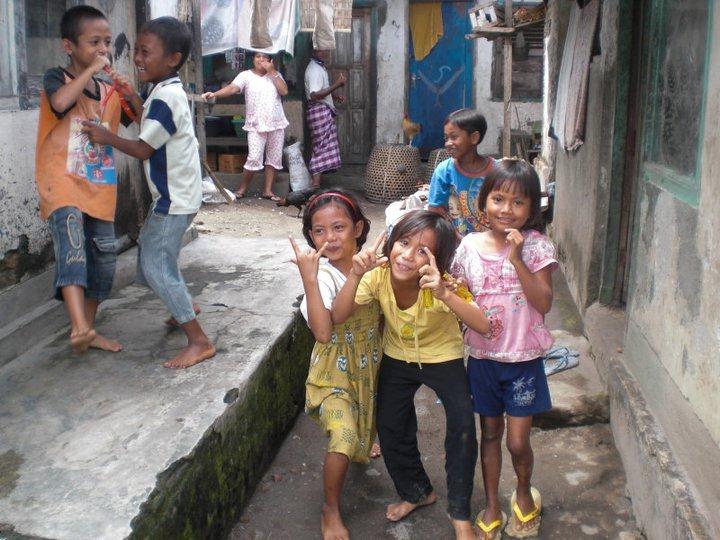Bringing music, art and English to an Indonesian orphanage
By Steve Bynum

Bringing music, art and English to an Indonesian orphanage
By Steve Bynum
For Thursday’s Global Activism segment, we talk with Kat Vallera, co-founder of Music for Lombok. The nonprofit aims to bring music, art and English education to an orphanage in Indonesia, promoting religious and cultural tolerance in the process.
When Vallera reached out to us she wrote, “You are probably wondering, how does a Caucasian girl from Chicago” get interested in kids “on the other side of the world?” She was kind enough to explain:
In the fall of 2010, I headed out to Thailand to teach kindergarten music at a Thai school in the outskirts of Bangkok. I wanted to experience a life entirely different than the one I had here in the Midwestern United States. Unfortunately, things went sour when I discovered the true nature of the institution of my employment. The racism and worse yet, child abuse, I witnessed often drove me to tears. I watched helplessly as my Thai teacher took every ounce of fun and creativity out of music and replaced it with some kind of cut and dry exact science that these five-year-old children were expected to perfect, or else face punishment.
Even as a bystander, I knew that there was nothing I could do to help these children and I had to escape such a negative teaching environment. I bailed on my contract and headed for the border on an overnight train to Laos. I spent the next six months wandering alone throughout Southeast Asia, until I made my way to Indonesia’s Gili Trawangan. This is where I met Ahmet, the employee of an internet cafe who donated a large portion of his own salary every month to his village’s school and orphanage. I could tell from the moment I met him that Ahmet was an honest soul, so I accepted his invitation to visit his village in Lombok. Also accepting his invitation was my future partner in this nonprofit, Sarah Rutherford, an Australian native.
We were both incredibly touched by the beauty and genuine nature that emanated from the people of this village. I saw people within the community, living well below Western standards of poverty, who loved each other, took care of each other and accepted us into their circle with open arms. Al-Ashriyah, the village’s school and orphanage, fostered the kind of educational environment that I wanted to nurture and inspire. In the beginning of my story I had witnessed the worst of education, but I learned from that and discovered an educational community with which I could grow.

The orphanage’s school is called Al-Ashriyah, located in the village of Sesela Gunung Sari. In comparison to Western standards, the school is run down and in serious need of some tender loving care. At Al-Ashriyah, children walk barefoot through dirt and garbage. At night, they sleep on cold, concrete floors. There is currently no music program beyond a single acoustic guitar and one computer. Using only these resources, the students continue to express their creativity by making music and videos. Wouldn’t it be great if there were more instruments, and instruction, that would allow the children to expand their musicianship?
I myself am an agnostic raised in the Christian faith, but one of the things that I love about Indonesia is its multi-theism. It is a country where Muslims, Hindus, Christians and Pagans live amongst one another, sharing the same national identity. The village of Sesela Gunung Sari is predominantly Muslim yet is filled with people that demonstrate peace, love and humanity. In light of recent American history and continuing negative media coverage in the Middle East, I believe it would be beneficial for Music For Lombok volunteers to have a positive, first-hand experience with Muslim culture.
